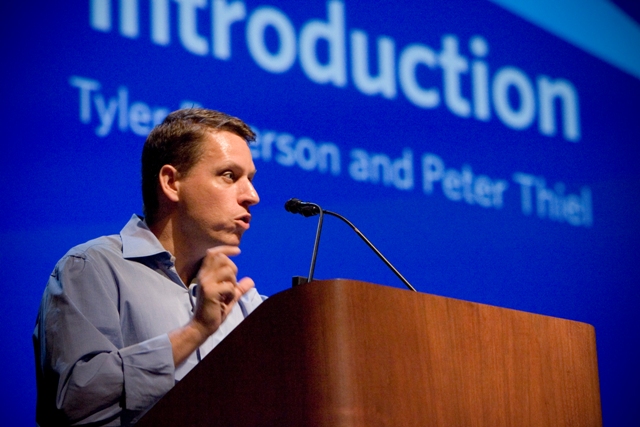The Thiel Fellowship: 20 Under 20

In September 2010, Peter Thiel, the famed technology entrepreneur and investor and an early investor in Facebook, launched a controversial fellowship program. He called it "20 Under 20" and descriptively so. The fellowship is targeted at entrepreneurs under 20-years-old who have big dreams and have what Thiel believes to be the ability to change the world. Thiel Fellows "will pursue innovative scientific and technical projects, learn entrepreneurship, and begin to build the technology companies of tomorrow," as the website describes. Thiel strongly believes that if someone has the right idea and is motivated enough to pursue it at a young age, a college education is unnecessary--even a hindrance--to the potential impact the idea can have. He points to examples such as Bill Gates of Microsoft, Steve Jobs of Apple Inc., and Mark Zuckerberg of Facebook to support his claim. Under the fellowship, Thiel will award 20 "lucky" entrepreneurs younger than 20 with $100,000 on the condition that they either drop out of college or forgo or postpone a college education for 2 years to work on their idea full-time.
The idea sounds great, but it does not come free of some ethical questions. Is it right to encourage students to drop out of school? Given that the vast majority of start-ups fail, is it really in the student's best interest to forgo a college education and the accompanying personal and social development opportunities?
The Thiel Fellowship and these questions were what first got us thinking about the entrepreneurship culture at Stanford, and we realized that even though it's universally accepted that Stanford is one of the best schools for entrepreneurship, there are a lot of big-picture issues that haven't been addressed, particularly from the perspective of Stanford undergraduates.
For example, does Stanford focus too heavily on entrepreneurship at the expense of a classical liberal arts education? The "decline of the humanities" is a widely cited problem across higher education, and Stanford's entrepreneurial focus and proximity to Silicon Valley might exacerbate the situation. Further, does Stanford as an institution train real innovators or simply business leaders? After all, it's been said that other schools, such as MIT and Caltech, produce stronger engineers than Stanford, but Stanford students end up managing the others. Is this a problem?
Back to the top ↑










